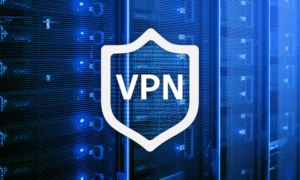Are you tired of constantly playing catch-up when it comes to your online safety and privacy? With the ever-evolving digital landscape, staying one step ahead is crucial. From protecting your personal information from cybercriminals to safeguarding your online presence, this blog post unveils proactive measures that will empower you to take control of your internet security. Get ready to navigate the virtual world with confidence and say goodbye to worrying about potential threats – it’s time to prioritize your safety like never before.
What is Internet Security?
Internet security is a topic of increasing importance as more people become engaged in the world of online activities. There are many ways to stay safe online, and the key is to adopt a proactive approach.
1. Use a VPN: A virtual private network (VPN) helps protect your privacy by encrypting your traffic and masking your true location. If you’re using public Wi-Fi, be sure to use a VPN to keep your data secure. When browsing the web, be mindful of your IP address and always sign out of websites when you’re finished.
2. Stay up-to-date with security patches: As technology changes, so do vulnerabilities in software and systems that can be exploited by criminals or hackers. Make sure all of your devices are updated with the latest security patches from manufacturers such as Apple, Microsoft, and Google.
3. Install anti-virus software: Make sure you have installed anti-virus software on all of your devices to help protect yourself against malicious files and viruses that can infect your computer or mobile device. Anti-virus software can also help detect spyware and other types of malware that can steal personal information or damage your computer system.
4.. Backup important files: Always make backups of important files such as photos, videos, and documents so you can restore them if something goes wrong. Backups should also include copies of system files so you can troubleshoot problems should they arise .
5. Use strong passwords: A strong password is one that is difficult to guess and that is unique for each individual. Make sure you change your passwords regularly and never share your passwords with anyone.
6. Don’t fall for cyber-scams: Cyber-scams are scams involving the internet that try to trick you into revealing personal information or sending money to someone you don’t know. Be especially wary of emails, texts, or online ads that ask for personal information such as a bank account number or social security number.
Defining Internet Security Threats
It is no secret that the internet has become a crucial part of our daily lives. It allows us to stay in touch with loved ones, access information and services, and communicate with others around the world. However, like any other public space, the internet also presents risks and threats.
Internet security threats can come from a variety of sources: cybercriminals who seek to steal personal information or use harmful software; terrorist groups who wish to exploit online platforms for recruitment or propaganda; nation states who may be interested in tracking or infiltration your online activities; and malicious bloggers or trolls who want to cause drama or disruption on social media platforms.
Thankfully, there are many proactive measures you can take to protect yourself from these types of threats. First and foremost, always be sure to install updated security software on your computer and mobile devices. This will help protect you against known vulnerabilities and attacks, as well as new ones that emerge over time. Additionally, keep up-to-date on current internet safety tips and advice from trusted resources such as the United States Federal Bureau of Investigation (FBI) or AntihackUK.
Don’t neglect your offline security measures either! Always safeguard your personal information by storing it securely on devices that only you control (such as a locked phone or encrypted vault), AND make sure to regularly update your privacy settings on all web sites and applications you use. By taking these simple steps, you can greatly reduce your risk of becoming a victim of an Internet security threat.
Protecting Yourself Against Online Threats
Online threats are all too common, and can come from anyone. Whether it’s hackers trying to break into your computer or someone sending you unsolicited emails, your safety and privacy online need to be a top priority. Here are some proactive measures you can take to stay safe online:
1. always use a strong password: make sure your password is complex and includes at least 8 characters, and change it regularly
2. encrypt your data: using encryption on your laptop or desktop computer will help protect your information from being stolen by hackers
3. install a security app: there are many free and paid apps available that can help keep you safe online, including ones for tracking activity on your computer, preventing identity theft, and more
4. never give out personal info: don’t disclose any personal information (like birth date or Social Security Number) when registering for websites or signing up for email addresses
5. be suspicious of unsolicited emails: if an email seems fishy or asks you to do something you don’t want to do, don’t reply
6. use caution when using public Wi-Fi: using a public Wi-Fi hotspot can put your personal information at risk, and make it easy for hackers to access your computer
7. report any threats or harassment you experience: if you feel like your safety is being threatened online, reach out to the authorities immediately.
Encryption and Web Caching
It’s no secret that the world economy is moving online. In fact, according to eMarketer, by 2020, 57 percent of all US adults will be online. And as more and more businesses move their operations online, the need for security and privacy becomes increasingly important.
One way to ensure safety and privacy when surfing the Internet is to use encryption technology. Encryption scrambles data so that it is unreadable by anyone but the intended recipient. This helps protect against improper access or interception of your emails, passwords, or other confidential information.
Another method for protecting your online activity is through caching. Caching enables websites to store copies of pages you visit on their servers so you don’t have to re-request them each time you visit. This helps reduce the load on the website and increases performance. So if you want to make sure your visits to sites are private and secure, encrypt your data and cache your pages for later use.
Suggested Proactive Measures for Stay Ahead of the Threat Curve
With cybercrime on the rise, organizations of all sizes are taking proactive measures to stay ahead of the threat curve. Although no one approach will be effective for every organization, following some simple guidelines can help mitigate cyber threats and keep your data and systems safe.
1. Install comprehensive security solutions: Protecting your data and systems from attack starts with putting in place comprehensive security solutions that cover a variety of platforms and devices. Many organizations rely on outdated software that is known to be vulnerable to cyberattacks. Updating these policies and technology can help protect your information against sophisticated invaders.
2. Conduct regular privacy assessments: Even if your enterprise has implemented comprehensive security solutions, it’s still possible for unauthorized parties to access sensitive data or interfere with business operations through online channels. To stay ahead of potential threats, perform regular privacy assessments to identify any gaps in security measures that could be exploited by malicious individuals or groups.
3. Educate employees about online safety: It’s not enough to simply install security solutions; you also need to educate employees about proper online etiquette and safety habits. As long as employees continue to use public networks without caution, hackers will continue targeting unsuspecting targets. Inform workers about the dangers posed by phishing emails, social media scams, and other fraudulent activities designed to harvest personal information or financial data.
4. implement strong data encryption: Cybercriminals are constantly working to steal confidential information from businesses, so it is imperative that data is encrypted whenever it is stored or transmitted in order to protect it from unauthorized access. Regularly Back up your Data with a Cloud-based Backup solution.
5. Implement effective incident response procedures: In the event that data is compromised, you need to have an established plan in place for responding to the incident. This includes engaging a cyber security firm to help monitor and mitigate any threats, restoring affected systems and data, and providing support and counsel to affected employees.
Conclusion
Cyber security and privacy are two important topics that should be taken seriously by everyone, especially individuals who use the internet. Proactive measures can help ensure safety and privacy online.



































